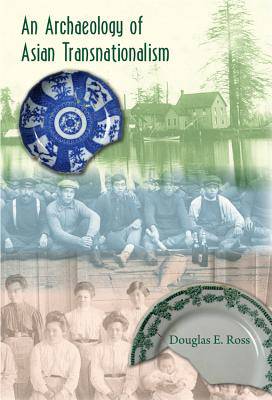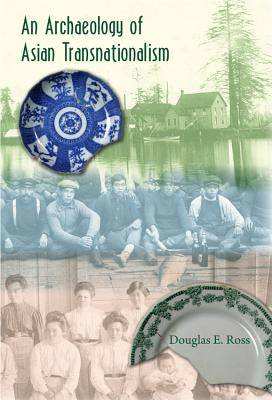
- Afhalen na 1 uur in een winkel met voorraad
- Gratis thuislevering in België vanaf € 30
- Ruim aanbod met 7 miljoen producten
- Afhalen na 1 uur in een winkel met voorraad
- Gratis thuislevering in België vanaf € 30
- Ruim aanbod met 7 miljoen producten
Zoeken
Omschrijving
"Pushes the historical archaeology of Asian diasporas in new and exciting methodological and theoretical directions."--Stacey Lynn Camp, author of The Archaeology of Citizenship "Building an innovative methodology that emphasizes diasporic, rather than ethnic, identity, this book provides a model for the archaeology of material culture in pluralistic societies. An essential reference for the archaeology of labor and immigration."--Barbara Voss, coeditor of The Archaeology of Colonialism "A dynamic narrative blending historical and material data to interpret the complex topics and social relations of diasporic identity formation, transnationalism, and alienation. Well thought out and an important contribution to social archaeology and issues of social justice."--Stephen A. Brighton, University of Maryland In the early twentieth century, an industrial salmon cannery thrived along the Fraser River in British Columbia. Chinese factory workers lived in an adjoining bunkhouse, and Japanese fishermen lived with their families in a nearby camp. Today the complex is mostly gone and the site overgrown with vegetation, but artifacts from these immigrant communities remain, waiting below the surface.
In this groundbreaking comparative archaeological study of Asian immigrants in North America, Douglas Ross excavates the Ewen Cannery to explore how its immigrant workers formed new cultural identities in the face of dramatic displacement. Ross demonstrates how some homeland practices persisted while others changed in response to new contextual factors, reflecting the complexity of migrant experiences. Instead of treating ethnicity as a bounded, stable category, Ross shows that ethnic identity is shaped and transformed as cultural traditions from home and host societies come together in the context of local choices, structural constraints, and consumer society.
In this groundbreaking comparative archaeological study of Asian immigrants in North America, Douglas Ross excavates the Ewen Cannery to explore how its immigrant workers formed new cultural identities in the face of dramatic displacement. Ross demonstrates how some homeland practices persisted while others changed in response to new contextual factors, reflecting the complexity of migrant experiences. Instead of treating ethnicity as a bounded, stable category, Ross shows that ethnic identity is shaped and transformed as cultural traditions from home and host societies come together in the context of local choices, structural constraints, and consumer society.
Specificaties
Betrokkenen
- Auteur(s):
- Uitgeverij:
Inhoud
- Aantal bladzijden:
- 264
- Taal:
- Engels
- Reeks:
Eigenschappen
- Productcode (EAN):
- 9780813044583
- Verschijningsdatum:
- 5/11/2013
- Uitvoering:
- Hardcover
- Formaat:
- Ongenaaid / garenloos gebonden
- Afmetingen:
- 155 mm x 229 mm
- Gewicht:
- 498 g

Alleen bij Standaard Boekhandel
+ 223 punten op je klantenkaart van Standaard Boekhandel
Beoordelingen
We publiceren alleen reviews die voldoen aan de voorwaarden voor reviews. Bekijk onze voorwaarden voor reviews.











